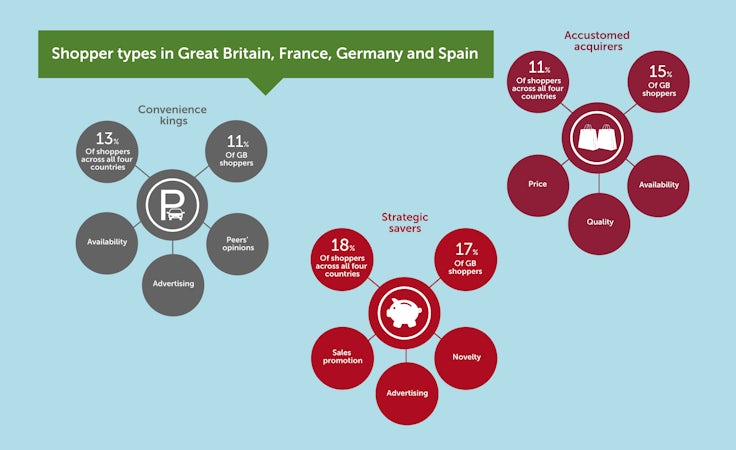Mark Ritson: ‘Backwards’ market research will help you move forward
I have a client who I work for each year helping to run their global marketing training. We send 700 executives a super-sexy iPad Mini at the start of the year, which has uploaded on it case studies, readings and simulations that we will use to train them during the year.

With just a week to go before we ‘lock down’ the iPad content for 2015, I am still juggling a dozen different articles that may or may not make it into the Library App on the device. One of the great joys of working on this project is rediscovering a treasure trove of readings that I had forgotten I had forgotten.
Top of that list, and which I recommend every marketer reads, is a beautifully simple article published 30 years ago by Professor Alan Andreasen from Georgetown University. The piece ‘Backwards Market Research’ explains why most market research is shit.
Andreasen, a far classier guy than me, puts it more subtly. As he noted in 1985: “Managers tend to define the research problem as a broad area of ignorance. They say in effect: ‘Here are some things I don’t know. When the results come in, I’ll know more. And when I know more, then I can figure out what to do.’ In my experience, this approach makes it highly likely that the findings will be off target.”
His observation is as valid today as it was three decades ago. Most research springs from a binary process in which a marketer decides they need to understand an issue with data, they bring in a market research firm, give them a broad brief, rejoining the process only when the research team returns with its results.
In my experience, the last person on the planet you want designing your research is a research agency. Don’t get me wrong, they have an important place downstream in the process recruiting the sample and executing the data collection.
But when clients ask researchers to design everything they usually get incredibly long questionnaires, aimed at a ridiculously large sample using very expensive approaches that rarely help to answer the strategic question driving the entire initiative.
Andreasen’s solution is as elegant as it is powerful. Backwards market research literally turns the whole process of gathering data to make decisions on its head.
First, work out how you will use the eventual data and the ultimate purpose of the research. Second, work back from that usage to imagine the final report or presentation you need to make in order to convince yourself and others of the right course of action. Third, design the analytic tools needed to create this report and the sample required to make the data robust – only at this stage consult the research firm. Finally, ask them to execute the research.
Too often marketers walk into a meeting with their research agency to see “what the research is telling us” without properly understanding what the research was designed to investigate in the first place and what they are going to do with the outputs. Superior marketers design the research report long before the data has been collected and inspect the subsequent data not to see what it tells them, but how it will drive the ultimate strategic decision that spawned the research in the first place.
That may sound like you’re making assumptions about what the data will reveal long before the research has been executed. But the real skill of backwards market research is visualising the charts and tables you want to see from the research, without assuming what they will reveal when they are filled out with data.
The result is a cleaner, more efficient approach to market research and one that leads to almost immediate strategic outputs.
Too often the traditional approach to market research design results in the client feeling that they already were aware of what the data is telling them or that there isn’t any big message coming out of the data. These are not signals that you are using a shit market research firm, they indicate that you – dear reader – and your approach to marketing is shit.








Good researchers – whether they are agency-side or client side – should be good at asking questions, active listening and challenging weak statements.
So they should ask questions like; what does success look like? Do you have a hypothesis? What’s holding decision making back? at the briefing stage.
At this point the old “Lightpost” analogy comes into play: are marketers planning on using research to a) lean on, b) piss on, or c) for genuine illumination?
Researchers (agency or client) should not be afraid to ask this exact question.
Good researchers – whether they are agency-side or client side – should be good at asking questions, active listening and challenging weak statements.
So they should ask questions like; what does success look like? Do you have a hypothesis? What’s holding decision making back? at the briefing stage.
At this point the old “lamp-post” analogy comes into play: are marketers planning on using research to a) lean on b) piss on or c) for genuine illumination?!
Researchers (agency or client) should not be afraid to ask this exact question
In other words, correctly identified issue is a critical aspect. I want my 1 min back.
Thanks for the article in Marketing Week on commissioning and completing research.
I am not sure that the industry always knows what answers they want, let alone the form/outputs that those answers should take .
I think the industry is attracted to the traditional (invariably quant ) research to give them the story they want or perhaps attracted to something that is different and appealing. Research methods like ethnography fit this ..and the client embarks on a journey for all sorts of reasons rather than necessarily wanting to really discover and know. The problem is the client doesn’t often know this.
Indeed one of the potential risks of being a researcher is that the results that come out of the work that I do are often pretty unpredictable so I as the researcher become the problem being the messenger if PR is too involved in the discovery of the knowledge.
Before taking a brief I aim to discuss with the clients and engage with the possibilities around the research. As you know this research can be really valuable and powerful but in hindsight, probably best with a brave and intelligent client that really trusts the researcher and best that the research programme is super confidential and longitudinal.
I have several projects I am juggling – one that you might be interested in is climate change messaging in content – how do people respond to messages that are in the news, in films, in comedy, on facebook and how do they interact, share, ignore and discuss these .
Of course this cc messaging research can contribute only a tiny part of the bigger picture, but it can potentially still be an important part.
For example – I dip my toe into the vast amount of film and data that we have and maybe look at a couple of families as a pilot and look at the content they are exposed to (with different degrees of apparent attention) on multiple devices and I can see already that for these families they are exposed to very little cc messaging of any type (film/news/soap/comedy/facebook) and of course that is an insight that we don’t know unless we have begin the process of analysis.
I have tipped the industry off on this so it should increase going ahead but I hope to keep an eye on this in the future with a programme of research looking backwards (learn from existing knowledge and footage) to discover …and this is where we need a brave client as it is unknown and as such research that is not a simple pr marketing exercise but something more human and more credible and hopefully really useful to all including the company if they are brave enough.
I went to a IPA event the other day at google offices and because there is so much potential money in Big Data There was more of a tolerance around the research and discovery process – one chap from Havas – Dominque Delport was saying to everyone in the open meeting how we need hybrid teams to connect the dots and fail and test and fail and test.
I hope that the industry can apply the same ‘fail test fail test learn’ philosophy to understanding behaviour using the ethnography because we are still learning and very often the client maybe brave and want to know but may need more time and head space to consider failure and testing again and then learning …
Without this – the research is likely to be less impactful, it is a philosophy that is worth promoting. Thanks for the post mark.
Thanks for providing this valuable information! It certainly is very interesting to see how over the last decade or so spend on research has dramatically shifted towards the internet. Gopromotional
beware prejudiced or presumptive opinion versus open mindedness to research purpose